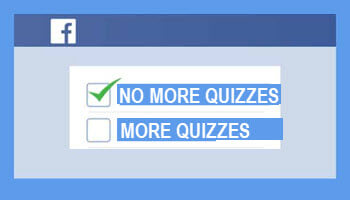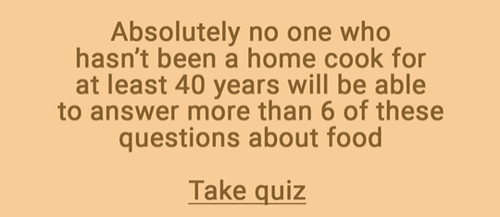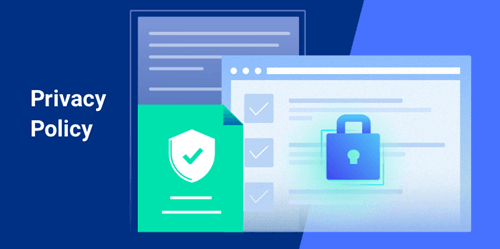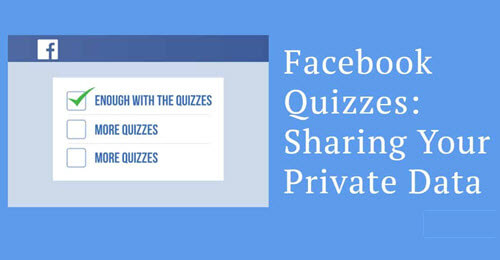Any regular Facebook user will undoubtedly have come across the multitude of quizzes and personality tests that proliferate the social media site. The quizzes will usually entice participation with something like, ”No-one can get 10/10 on this quiz”. While many of these quizzes can be harmless fun, some quizzes and most of the personality type quizzes can be specifically designed for more nefarious purposes.
How Much Information Can A Website Gather?
In order to properly understand the potential risks involved with this seemingly innocuous source of light entertainment you first need to be aware of just how much information is revealed each time you visit a website– that information includes:
- Your IP Address: Which in turn reveals your approximate location and the name of your Internet Service Provider
- Browser: The name and version of your browser plus all installed extensions
- Details of your Device: Which operating system and version you’re running, what CPU and GPU you are using, the screen resolution
While none of these individual snippets of information are personally identifiable, when all pieced together they do form a unique and easily identifiable online footprint. When you visit multiple sites using the same browser, for example, a clear link between those activities can be made via that footprint.
Check Privacy Policies
All websites have the ability to identify and record all this information but most reputable/ethical sites do not and will generally include some sort of Privacy policy which states what data is collected and for what purposes. Here at DCT, for example, on our Policies page you will see the following:
Privacy: Your privacy is of the utmost importance to us. We value our privacy and will respect yours. We collect only basic information such as first names and email addresses. We will not share, sell, or give your information to any third party, nor will we use your email address for spam.
Whenever you click on a quiz posted on Facebook you are then taken to a website that has the ability to collect all of the above-mentioned data and more. I am not suggesting that all do, just that they have the ability to and, minus any sort of privacy guarantee, potentially are. Bearing in mind that when this type of user data is collected en masse it becomes a fairly valuable commodity which can then be sold on to organizations, such as advertising agencies.
Personality Quizzes
These are the types of quizzes where you answer a series of seemingly innocuous questions and, in the end, you are then presented with an evaluation of your specific personality traits, purportedly based on your answers. They usually come with some sort of fun introduction — If you were alcohol, what drink would you be? Which Dr. Seuss character are you? — or something similar. The problem here is that many of the questions posed can be very similar, if not identical, to the secret answers often used for account security purposes such as, what is your pet’s name, the name of your childhood best friend, your first car, the place you were born, your favorite place, etc.
There might only be one or two such questions per personality quiz but if you take enough of these types of quizzes, the accumulation of answers can be used to build a fairly comprehensive profile. Even when these questions are in no way related to common security questions, they are still revealing more and more snippets of information about you and, potentially, expanding your profile.

”This game will have access to your public profile information and the people you know who also play the game”
There are known cases of identity theft based solely on information gleaned via these types of quizzes. At the very least this type of information gathering can be used by a scammer to impersonate you to your friends and family.
NOTE: In the first half of last year Facebook announced it was banning personality quizzes. The proposed ban came a year after the Cambridge Analytica scandal, when it was revealed that the data firm had acquired information on up to 87 million people through the quiz app ”thisisyourdigitallife”. However, I am still seeing plenty of these types of quizzes on Facebook.
You Won’t be Winning An RV On Facebook
Slightly off-topic, but a scam that’s been doing the rounds here (in Australia) involves a Facebook post whereby a very expensive RV is supposedly up for some lucky person to win in a giveaway. This post has gone viral here with so many people sucked into the scam that RV manufacturers and dealerships are being forced to submit their own posts advising that this is a hoax and there is no contest and no free RV. If it sounds too good to be true, it usually is!
So what’s the end game? A Facebook user creates a fake giveaway to gain mega amounts of likes on one page. They then sell that page on the Internet’s black market– according to a number of experts, a page with 100,000 likes goes for $1,000. After the sale, the new owner will pull all signs of the giveaway from the page and then use it to promote their own products or to send you a new scam aimed at getting your personal information. In fact, one of the pages that has been offering an RV giveaway has already removed the post (or possibly had it removed by Facebook) but, in the meantime, it amassed more than 364,000 likes.
Rules For Staying Safe
Personally, I believe most of the trivia type quizzes posted on Facebook to be relatively harmless. However, you need to be aware of the type of information that participation can potentially reveal. The personality type quizzes represent a completely different kettle of fish and should always be treated with utmost caution. If you must participate, here are a few golden rules that will help limit your exposure:
- Be skeptical: Take quizzes only from respected websites. Is it a brand you trust? Just because something appears to be fun and innocent, doesn’t mean there isn’t an inherent risk. Free quizzes offered on social media aren’t always free– you could be paying with your personal data that big data companies collect for targeted advertising, or cybercriminals collect to sell on the dark web
- Be careful what you share: Never, under any circumstances, provide personal information such as your email address or phone number
- Don’t give answers to common security questions: Be extremely cautious if the questions in a quiz ask for things like your mother’s maiden name, the street you grew up on, the name of your high school, or anything similar to common security questions
- Always keep in mind: Once you participate in these quizzes, you can’t take back the information you provide
FURTHER READING:
*Stay informed, stay safe: Subscribe to DavesComputerTips Free Weekly Newsletter
—






Thanks Jim,
I hope that hordes of people read the advice, but I bet the hordes who read it will ignore it as they did with Covid-19.
Talk about casting the net to catch squillions of vulnerable individuals, the Facebook site is the master fishing company.
Jonno.
Hey Jonno,
Well put, agree 100%. Trouble is, people tend to ignore the risk when it isn’t tangible. Plus, there is always the “it will never happen to me” syndrome.